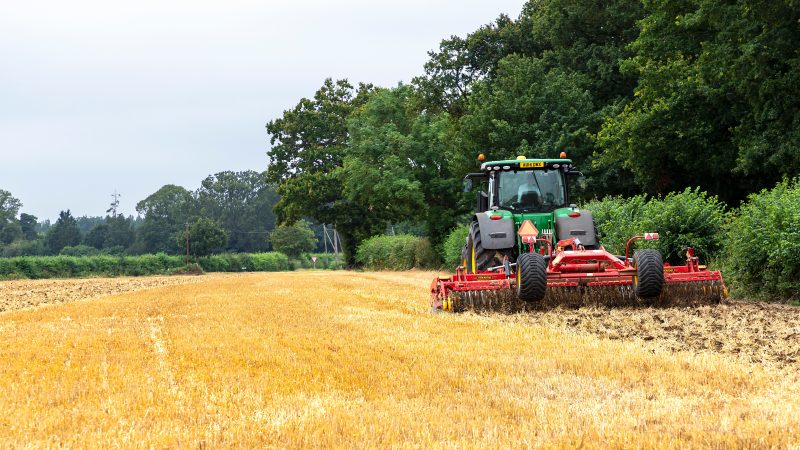
Keir Starmer will set out Labour’s pitch to rural communities today. Addressing the National Farmers’ Union (NFU) conference this afternoon, the Labour leader is expected to reiterate again that Labour has “changed” under his leadership, telling attendees: “We’re a changed party – from top to bottom. A party that is fit to serve, that is compassionate and competent, that aspires to govern for every corner of our country and that seeks a new relationship with the countryside and farming communities on this basis.” Continuing the crime week theme, the Labour leader will promise more police based in the countryside under a future Labour government. He will emphasise the “unique problem” facing rural communities of police officers being based “miles away” from incidents, stressing the need for a “different approach, one that is designed, from the start, with respect for the challenges of the countryside”.
Starmer will declare that farmers “deserve a government that listens” and “shows the level of ambition needed to tackle the challenges you face”. He will commit his party to “backing homegrown food”, pledging that, under a Labour government, at least half the food the public sector buys will be locally produced or highly sustainable. “We’re committed to reforming public procurement – using it sensibly and carefully – to build up our sovereign capabilities in key industries. It’s a crucial aspect of our industrial strategy, our partnership. And seasonal, sustainable, British-grown food is a key part of it,” Starmer is expected to say. Turning to trade, the Labour leader will argue that the Tories have “given up on farmers” and set out how Labour will take a “very different” approach. “We want to remove barriers to exporters, not put them up. We want to protect high British standards, not water them down. We are going to talk to our friends in the European Union, and we are going to seek a better trading relationship for British farming.”
On the broadcast round this morning, Jim McMahon argued that the Tories have “completely demolished” their reputation among rural communities over the last 13 years as a result of how the party has treated farmers and approached UK food security. Highlighting the empty shelves seen by shoppers in some supermarkets, the Shadow Environment Secretary told Sky News: “The government are not on the side of farmers, they’re not on the side of food security and, as a result, in the end, consumers are paying the price.”
Polling supports McMahon’s claim of collapsing support for the Conservatives in rural areas – and suggests a longer-term trend than the national swing towards Labour that we have seen since the autumn. Research by the Country Land and Business Association – the membership organisation for owners of land, property and businesses in rural England and Wales – published in April last year, indicated that rural voters were already turning against the Tories in considerable numbers. Its survey of 1,000 individuals across five of the UK’s most rural counties found that 36% of respondents planned to vote Labour, while 38% intended to vote Conservative. This compares to 46% of respondents voting Tory at the last election and 29% voting Labour.
Research from the Fabians released at the end of last year suggests this trend continued throughout 2022. A Fabians-YouGov survey found that 30% of rural voters would vote Labour, the same proportion who said they would back the Conservatives. The Fabians found that the “rural surge” in Labour support was fairly broad, calculating that Labour had increased its vote share by 13 percentage points among under-55s and eight percentage points among over-55s. The report concluded that the Tories “appear to have lost touch with their rural heartlands and core voters”, noting that just 28% of respondents in rural places believed the Conservatives understood people who live in their area.
Sign up to LabourList’s morning email for everything Labour, every weekday morning.



More from LabourList
‘Turning public services around: Haringey’s story of child protection’
‘Can Labour turn the green tide back to red?’
Tom Belger column: ‘Why is Labour making migrant exploitation easier?’